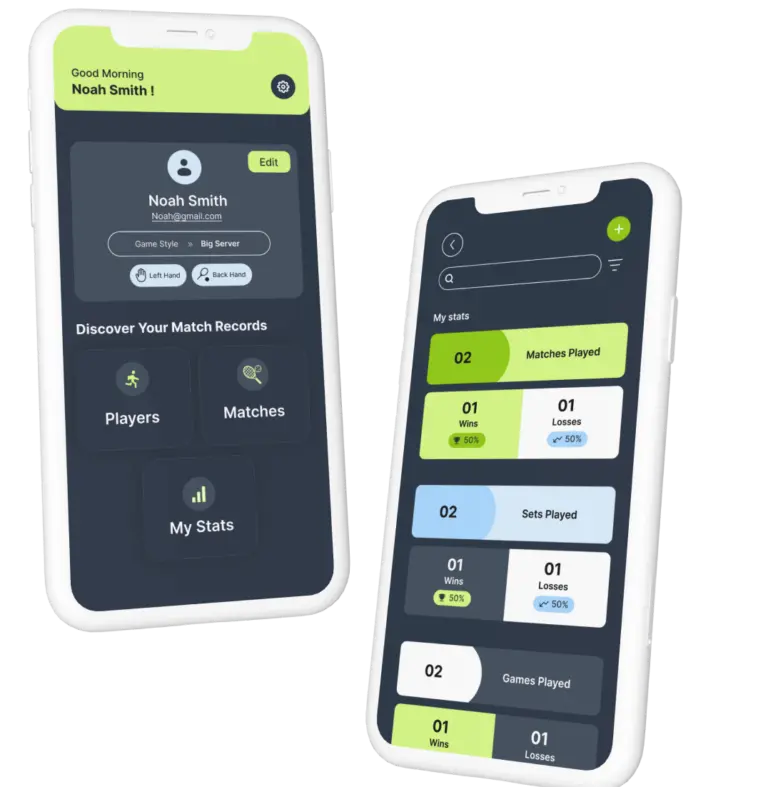In tennis, the mental game is as crucial as physical ability. Players often find themselves losing matches not because of technical shortcomings, but because they struggle to manage the psychological demands of the sport. Whether it’s handling pressure, staying focused during critical moments, or bouncing back after mistakes, improving your mental toughness through comprehensive Tennis Match Analysis can make all the difference on the court.
Enter tennis match analysis tools like Match Recall, which provide players with a way to reflect on both the physical and mental aspects of their game. These tools can help players track and analyze their matches while gaining insights into their mental performance. Here’s how using a tennis match analysis tool can strengthen your mental game and lead to better results on the court.
1. Identifying Patterns in Mental Performance
Tennis match analysis tools allow you to record not just the technical aspects of a match, but also your emotional and mental state during key moments. Were you feeling anxious during break points? Did you struggle to focus in long rallies? Tracking these patterns can help you identify where your mental game falters.
For example, you might realize that you consistently lose focus after losing a serve or that you get overly anxious in tiebreak situations. By logging these mental states after each match, you gain a deeper understanding of how your mindset affects your performance. Over time, you can begin to work on addressing these specific mental challenges.
2. Reviewing Your Mental Game in Pressure Situations
Every tennis player faces pressure situations—whether it’s serving for the match, playing a tiebreak, or trying to hold serve in a critical game. How you handle these moments can significantly impact the outcome of the match. With a tennis match analysis tool, you can review your performance in these high-pressure situations.
For example, after a close match, you can reflect on how you felt during crucial points. Were you confident or nervous? Did you execute your strategy, or did you start playing defensively? By reviewing this data, you can start developing mental strategies to stay calm and focused under pressure in future matches. Perhaps you’ll discover that sticking to a pre-serve routine helps calm your nerves, or that focusing on deep breathing keeps you composed.
3. Developing Mental Resilience Through Reflection
Reflecting on your matches is essential for mental resilience. After a tough loss, it’s easy to get down on yourself or focus solely on what went wrong. However, by using a tennis match analysis tool, you can approach losses with a balanced mindset. You can log not only the mistakes but also the moments where you played well, even if the outcome wasn’t in your favor.
For instance, if you lost a match because of a few key errors, reflecting on your overall performance might reveal that you actually played solidly for most of the match. This kind of balanced reflection helps maintain confidence and prevents discouragement from overshadowing the progress you’ve made. Over time, this resilience will translate into a stronger mental game on the court.
4. Creating Mental Game Plans for Future Matches
A tennis match analysis tool doesn’t just help you reflect on the past—it also allows you to create mental game plans for future matches. By tracking how you felt in various situations, you can develop strategies for approaching similar moments in the future.
For example, if you consistently lose focus after making a double fault, you can create a mental game plan to reset and refocus after those mistakes. You might use techniques like positive self-talk, visualizing success, or taking a few extra seconds between points to calm your nerves. With a structured game plan in place, you’ll be more mentally prepared to handle tough moments during your matches.
5. Building Confidence Over Time
Confidence is key to performing well in tennis, and a match analysis tool can help you build that confidence over time. By regularly tracking your performance and reflecting on both your mental and technical game, you’ll start to see your improvement. This can be especially important when you’re going through a rough patch or feeling like you’re not making progress.
Logging your thoughts and reviewing past matches where you performed well can serve as a reminder of your abilities. As you start to notice patterns in your mental game that improve, such as handling pressure better or staying focused through long rallies, your confidence will grow. This increased confidence will help you approach future matches with a more positive and winning mindset.
Conclusion: Strengthen Your Mental Game with a Tennis Match Analysis Tool
Improving your mental game in tennis is a process that requires reflection, self-awareness, and consistent effort. A tennis match analysis tool like Match Recall gives you the ability to track not only the physical aspects of your game but also the mental ones. By logging your emotions, reviewing your mental performance under pressure, and creating game plans for future matches, you can strengthen your mental resilience and ultimately improve your overall performance.
Ready to gain a mental edge on the court? Start using Match Recall to analyze your matches, reflect on your mental game, and build the confidence and focus you need to win more consistently.




